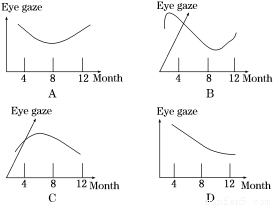题目内容
阅读理解。
When should people be made to retire? 55? 65? Should there be a compulsory age limit?
Many old people work well into their 70s and 80s, running families, countries or corporations. Other people, however, despite being fit and highly talented, are forced to retire in their fifties or even earlier because of the regulations of a company or the nation. This essay will examine whether people should be allowed to continue working as long as they want or whether they should be encouraged to retire at a particular stage.
Some people think there are several arguments for allowing older people to continue working as long as they are able. First of all, older employees have a large amount of knowledge and experience which can be lost to a business or organization if they are made to retire. A second point is that older employees are often extremely loyal employees and are more willing to carry out company policies than younger less committed staff. However, a more important point is regarding the attitudes in society to old people. To force someone to resign or retire at 60 indicates that the society does not value the input of these people and that their useful life is over. Age is irrelevant to a working life, surely if older employees are told they cannot work after 60, this is age discrimination. That they become old does not necessarily mean they are going to be sick. Old people could be more aware, experienced and committed than some youngsters.
Others, however, think that allowing older people to work indefinitely is not a good policy. Age alone is no guarantee of ability. Old people are only ambitious workaholics who are too selfish and self?centered to believe that a younger person could do better. Actually, many younger employees have more experience or skills than older staff, who may have been stuck in one area or unit for most of their working lives. Having compulsory retirement allows new ideas in an organization. In addition, without age limits, however, many people would continue to work purely because they did not have any other plans or roles. A third point of view is that older people should be rewarded by society for their life's labor by being given generous pensions and the freedom to enjoy their leisure. We now have youngsters who can't find jobs because old people are choosing not to retire. Old people are not retiring because this new generation of “old people” think they will never die due to modern advances in medicine.
With many young people unemployed or frustrated in low?level positions, there are often calls to compulsorily retire older workers. However, this can affect the older individual's freedom and right to work and can deprive (剥夺) society of valuable experience and insights. I feel that giving workers more flexibility and choice over their retirement age will benefit society and the individual.
1.What is the purpose of this passage?
A.To explain the compulsory age limit.
B.To discuss the retirement age.
C.To examine people's working life.
D.To introduce a particular stage.
2.Which of the following is NOT a reason for allowing old people to continue working according to the passage?
A.Their contributions should be valued.
B.Their experience should be made use of.
C.They can help the youngsters.
D.They are loyal employees.
3.It can be inferred in the fourth paragraph that ________.
A.the young people have more creative spirits
B.modern advances in medicine make old people never die
C.pensions and freedom are not given to the old now
D.old people believe that a younger person could do better
4.The passage is arranged as follows:________.

 阅读快车系列答案
阅读快车系列答案



